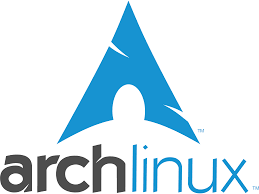Arch Linux

Arch Linux: The Ultimate DIY Distribution for Power Users
Arch Linux represents the pinnacle of Linux customization and control, offering experienced users an unparalleled opportunity to build their perfect operating system from the ground up. With its rolling release model, cutting-edge packages, and minimalist philosophy, Arch Linux has become the distribution of choice for enthusiasts, developers, and system administrators who demand absolute control over their computing environment.
📑 Table of Contents
- Arch Linux: The Ultimate DIY Distribution for Power Users
- The Arch Way: Simplicity Through User Control
- Pacman: The Lightning-Fast Package Manager
- AUR: The Community Powerhouse
- Installation: Building Your Perfect System
- Desktop Environment Freedom
- Development Paradise
- Gaming Excellence
- Security and System Hardening
- Performance Optimization
- Documentation: The Arch Wiki
- Download and Installation Resources
- Community and Support
- Why Choose Arch Linux?
The Arch Way: Simplicity Through User Control
Rolling Release Excellence
Unlike traditional distributions with fixed release cycles, Arch Linux employs a rolling release model that provides:
- Always Current Software: Latest packages and kernel versions
- No Version Upgrades: Continuous updates eliminate major version jumps
- Bleeding Edge Features: Access to newest software features immediately
- Minimal System Disruption: Incremental updates reduce compatibility issues
KISS Philosophy (Keep It Simple, Stupid)
- Minimalist Base: Install only what you need
- No Hand-holding: Users make informed decisions
- Transparency: Clear understanding of system components
- User-centric Design: Targeted at competent Linux users
Pacman: The Lightning-Fast Package Manager
Revolutionary Package Management
Pacman stands as one of the fastest and most efficient package managers in the Linux ecosystem:
- Binary Package Distribution: Pre-compiled packages for instant installation
- Dependency Resolution: Intelligent handling of package dependencies
- Conflict Detection: Prevents system-breaking package conflicts
- Delta Updates: Download only changed files for faster updates
Essential Pacman Commands
- Update System: sudo pacman -Syu
- Install Package: sudo pacman -S [package]
- Search Packages: pacman -Ss [query]
- Remove Package: sudo pacman -Rs [package]
AUR: The Community Powerhouse
Arch User Repository Excellence
The AUR represents the largest collection of Linux software available anywhere:
- 60,000+ Packages: Massive community-maintained repository
- Source-based Building: PKGBUILDs compile from source
- Community Verification: User ratings and comments system
- Cutting-edge Software: Latest development versions available
AUR Helpers
- Yay: Feature-rich AUR helper with Git support
- Paru: Rust-based AUR helper with advanced features
- Trizen: Lightweight Perl-based AUR helper
- Pikaur: Multi-threaded AUR helper with review support
Installation: Building Your Perfect System
The Arch Installation Process
Arch’s installation process teaches users about Linux fundamentals:
- Boot Live Environment: Minimal rescue environment
- Partition Disks: Manual disk partitioning and formatting
- Install Base System: Essential system components
- Configure System: Network, locale, and boot configuration
- Install Bootloader: GRUB, systemd-boot, or rEFInd
System Requirements
- RAM: 512 MB minimum (2 GB recommended)
- Storage: 2 GB minimum (20 GB recommended)
- Architecture: x86_64 (64-bit)
- Internet: Required for installation and updates
Desktop Environment Freedom
Unlimited Desktop Choices
Arch Linux supports every major desktop environment and window manager:
- GNOME: Modern, polished desktop experience
- KDE Plasma: Feature-rich and highly customizable
- XFCE: Lightweight and traditional
- i3/Sway: Tiling window managers for efficiency
- Awesome/dwm: Minimalist tiling window managers
- Hyprland: Modern Wayland compositor with animations
Customization Without Limits
- Dotfiles Management: Complete configuration control
- Theme Engines: Unlimited visual customization
- Compositors: Advanced visual effects and transparency
- Status Bars: Polybar, Waybar, and custom solutions
Development Paradise
Programming Language Support
Arch Linux provides the latest versions of all major programming languages:
- Python 3.12: Latest Python with performance improvements
- Rust 1.75: Cutting-edge systems programming
- Go 1.21: Modern concurrent programming language
- Node.js 21: Latest JavaScript runtime
- GCC 13: Latest GNU Compiler Collection
Development Tools
- Git 2.43: Latest version control features
- Docker/Podman: Container development and deployment
- Kubernetes: Container orchestration tools
- VS Code: Feature-rich development environment
- JetBrains Suite: Professional IDEs
Gaming Excellence
Steam and Gaming Support
- Steam Native: Full Steam client with Proton support
- Lutris: Gaming platform for Windows games
- Wine-staging: Latest Windows compatibility layer
- GameMode: System optimization for gaming
- MangoHud: Performance overlay for games
Graphics Drivers
- Mesa: Latest open-source graphics drivers
- NVIDIA: Proprietary NVIDIA drivers with DKMS
- AMD: Open-source AMDGPU drivers
- Intel: Integrated graphics support
Security and System Hardening
Security Features
- Systemd Security: Modern init system with security features
- Firejail: Application sandboxing
- AppArmor/SELinux: Mandatory access control
- Fail2ban: Intrusion prevention system
- Full Disk Encryption: LUKS encryption support
System Monitoring
- Systemd Journal: Comprehensive system logging
- Htop/Btop: System resource monitoring
- Neofetch: System information display
- Glances: Cross-platform system monitoring
Performance Optimization
Kernel Options
- Linux Kernel: Latest stable kernel
- Linux-zen: Performance-optimized kernel
- Linux-lts: Long-term support kernel
- Linux-hardened: Security-focused kernel
System Optimization
- Zram: Compressed RAM for better memory usage
- Preload: Application prefetching
- Profile-sync-daemon: Browser profile optimization
- TLP: Laptop power management
Documentation: The Arch Wiki
World-Class Documentation
The Arch Wiki stands as the gold standard of Linux documentation:
- Comprehensive Guides: Detailed instructions for every topic
- Community Maintained: Constantly updated by users
- Cross-Distribution Value: Useful for all Linux users
- Problem-Solving Focus: Practical solutions to real problems
Download and Installation Resources
Official Downloads
Latest ISO: Arch Linux ISO
Installation Guide: Official Installation Guide
Arch Wiki: Arch Linux Wiki
Alternative Installation Methods
Arch Install Scripts: Archinstall
EndeavourOS: Arch-based with GUI installer
Manjaro: User-friendly Arch derivative
Community and Support
Getting Help
- Arch Forums: Active community discussions
- Reddit r/archlinux: Casual community support
- IRC Channels: Real-time chat support
- Discord Servers: Modern chat communities
Contributing
- Package Maintenance: Maintain AUR packages
- Wiki Editing: Improve documentation
- Bug Reports: Help improve software quality
- Community Support: Help other users
Why Choose Arch Linux?
Arch Linux appeals to users who want:
- Complete Control: Build exactly the system you want
- Latest Software: Always have the newest features
- Learning Experience: Understand how Linux really works
- Minimal Bloat: No unnecessary software or services
- Active Community: Engaged, knowledgeable user base
Arch Linux isn’t just an operating system—it’s a philosophy of computing that puts the user in complete control. For those willing to invest the time to learn and configure their system, Arch provides an unmatched computing experience that grows with your expertise and adapts to your exact needs.
Was this article helpful?
About Ramesh Sundararamaiah
Red Hat Certified Architect
Expert in Linux system administration, DevOps automation, and cloud infrastructure. Specializing in Red Hat Enterprise Linux, CentOS, Ubuntu, Docker, Ansible, and enterprise IT solutions.


